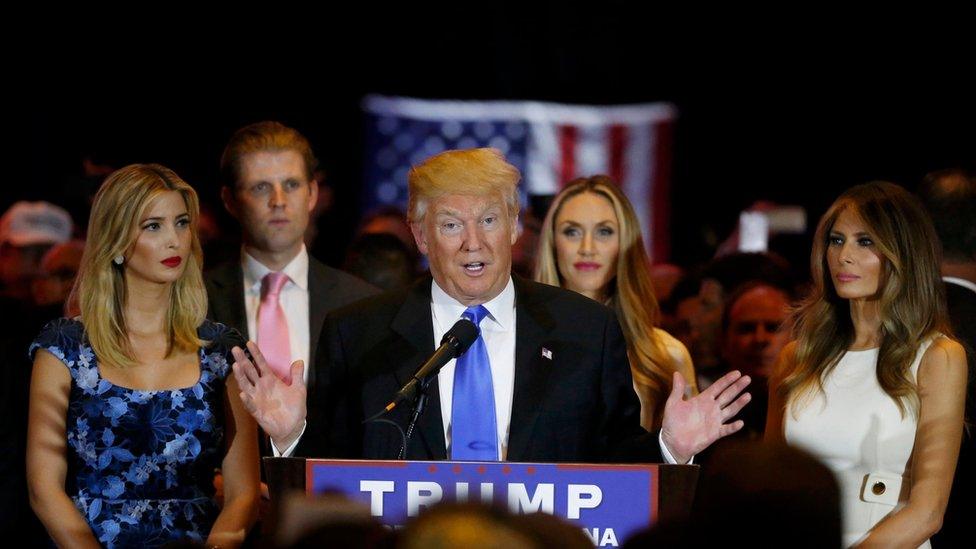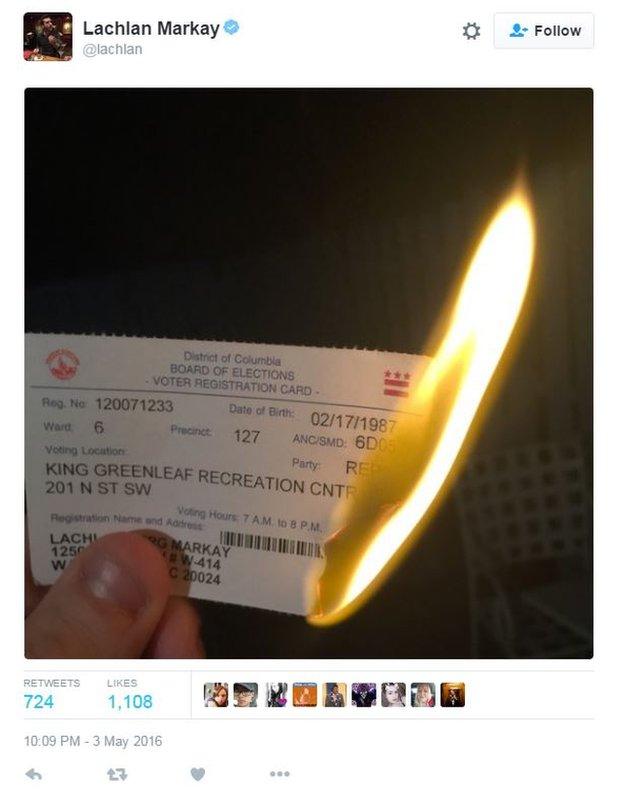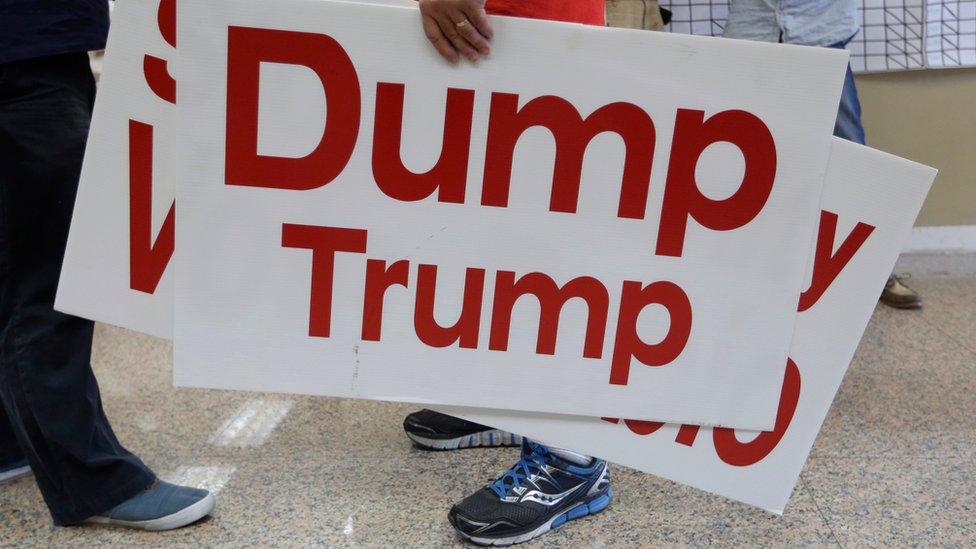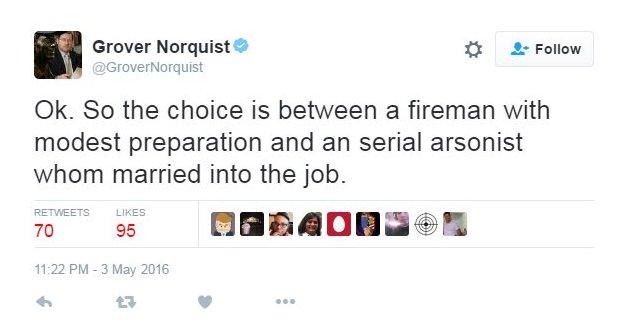US election 2016: Trump nomination divides Republicans
- Published

Some Republicans are conflicted about Mr Trump's nomination
Top Republicans are divided on whether to support Donald Trump after the businessman all but secured the party's presidential nomination.
Some took to social media to disavow their membership in the party by burning their voter registration forms.
Others, though, started to fall in line behind the candidate, saying Mr Trump is vastly preferable to Hillary Clinton, the likely Democratic nominee.
Mr Trump is deeply unpopular among many key voting blocs in the US.
"If we nominate Trump, we will get destroyed... and we will deserve it," South Carolina Senator Lindsay Graham said on Tuesday after Texas Senator Ted Cruz dropped out of the race, effectively clearing a path for Mr Trump.
Others such as former Louisiana Governor Bobby Jindal, who have been harsh critics of Mr Trump in the past, said they would support him in the general election.
"There's a lot about Donald Trump that I don't like, but I'll vote for Trump over Hillary any day," said Ari Fleischer, press secretary for former President George W Bush.

Some Republicans burned their party registration cards on Tuesday
Considered a long shot when he launched his campaign in June, Mr Trump has decisively won a large number of states across the US, defeating an experienced field of rivals.
Despite vowing to remain in the race, Ohio Governor John Kasich also ended his campaign on Wednesday.
Some Republican analysts fear Mr Trump's candidacy could have a crippling effect on other races, giving Democrats the chance to retake the Senate and possibly, but less likely, the House.
Republican senators up for re-election in Democratic leaning states such as Pat Toomey in Pennsylvania have sought to distance themselves from Mr Trump.
There are concerns about some of his policies on immigration and national security, like building a wall on the southern US border paid for by Mexico, a ban on Muslims coming to the US and the killing of the families of terrorists.
"I am a fiscal conservative and I am a social conservative," blogger Ben Howe said. "That will not change. But I will not vote for an egomaniacal authoritarian."

Analysis: Anthony Zurcher, BBC North America reporter

Some Republicans are considering drafting a third party candidate to challenge Mr Trump
Donald Trump took a televised victory lap on Wednesday, and he gave Republicans concerned about their presumptive nominee reason to cringe.
"I don't think it's imperative that the entire party come together," he said during one interview. "I don't want everybody."
The billionaire also stood by his call for a temporary ban on all Muslim immigration into the US - a policy popular among Republican primary voters but anathema to much of the general public.
For conservatives still vehemently opposed to Mr Trump, there was a silver lining in Tuesday's developments. Because the nomination has been effectively secured well before the Republican convention in late July, there is still time to organise an independent presidential challenge if they so desire.
Former George W Bush foreign policy advisor Eliot Cohen made that call on Wednesday. Even if such a candidacy fractures conservatives and leads to a Hillary Clinton presidency, he writes in the Washington Post, external, it would likely prevent the Democrat from receiving a mandate and "keep conservative consciences clean".
Filing deadlines in some states are approaching, which means anti-Trump forces must act quickly to gather the necessary resources.
Given that conservative opposition to Mr Trump has been a step behind for months now, however, that may be a lot to expect.

Although Mr Cruz left the race on Tuesday, he did not throw his support behind Mr Trump.
Personal attacks between the two candidates grew intense in recent weeks.
Mr Trump ridiculed Mr Cruz's wife, Heidi, and suggested that Mr Cruz's father was connected to Lee Harvey Oswald, the man who killed President John F Kennedy.
On Tuesday, Mr Cruz attacked the billionaire businessman as a "pathological liar" and "serial philanderer".

Influential anti-tax lobbyist made the case against a Clinton presidency
The unease among top Republicans is likely to complicate Mr Trump's search for a running mate.
Mr Trump has said he wants a vice-presidential nominee with political experience to balance the ticket.
A senior adviser for Jeb Bush merely laughed when the New York Times asked whether, external the former Florida Governor would consider being Mr Trump's running mate.
Ed Goeas, an adviser to Scott Walker also ruled out the Wisconsin governor.
"Scott Walker has a visceral negative reaction to Trump's character," Mr Goeas told the Times.

More on the Trump campaign

